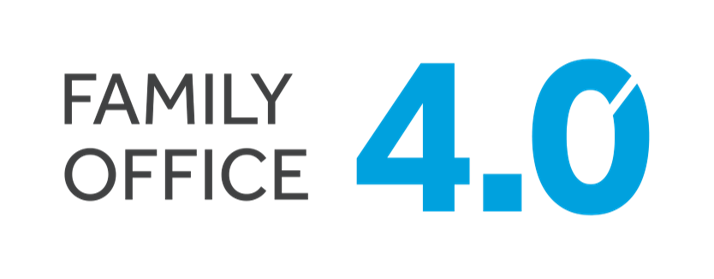Your story is the greatest legacy that you will leave to your friends. It’s the longest-lasting legacy you will leave to your heirs. — Steve Saint, entrepreneur, pilot and author
Monetary wealth is earned, sometimes lost, but can be gained again. Its value fluctuates over time. But your family legacy is enduring, and only appreciates with every passing day. No matter what the cynics say, you will be remembered less by your money, and more by your story.
To build your legacy – personal as well as business – you need to preserve your family history. And there can be no history without documented evidence of the past. To preserve your documents, you need to establish an archival program.
Why Archive?
Archival material outlines your family and business culture and ethos. It documents your growth, changes, and achievements. It is only by looking back and building up on the past that your family can look toward its future, learn from its experiences, and continue to thrive and function well into the next decade or even the century. Reasons behind missed opportunities, and strategies used to overcome challenges have the power to engage and align the next generation of family members or business leaders with current and future trajectories.
A formally managed archive also has direct commercial value. It is not just a matter for nostalgia but can contribute to the bottom line in the following ways:
- Provides evidence against hostile litigation, trademark infringement or assault on reputation
- Supports better management by improving efficiency and productivity through increased access to information
- Reduces operating costs by decreasing storage space needed for unnecessary records
- Decreases employees’ time spent on locating vital information
- Mitigates the risk of loss of important records in the event of a disaster
- Preserves the memory of your business and holds knowledge and experience often forgotten when people move on.
Archives serve as tools and sources for an empathic understanding of your past and help you maximize what is already uniquely yours: your heritage.
Yet, every day, families lose their valued items to neglect, mishandling and misplacement. Your attentive care can ensure their security. A scientifically maintained archive ensures quick access to your heritage and can be used by you, your family and employees. It will give you all the facts and artefacts to craft your story.
What to Archive
Records can be in many forms like papers, photographs, videos, blueprints, maps, drawings, sound recordings and electronic information. All of them have a life cycle. Information is received or created, used and disposed of as per its relevance. Most records can be destroyed when they are no longer needed. However, a certain percentage of business and personal records have lasting value and should be archived.
To identify valuable items, think of the things that can tell the story of your life. Normally they tend to be operational records of the core functions that shaped and grew the family office, like the minutes of meetings of the decision makers. They can also be private papers of the founders and other members of the family that have significantly contributed to the family office. Personal records relating to non-business activities such supporting charitable foundations or the local sports team, may very well provide insights into the way decision makers run the business. These records place the activities of the business in a broader context. As you go through your items, you may begin to notice patterns in your collecting. Make an effort to locate missing materials to fill out your story.
Generally, the most important offices in your organization will produce the most important records. Many people mistakenly believe that archival records are always ‘old’ records. The value of information does not depend on its age.
How to Establish an Archival Program
If your family and business has stored materials carefully over the years, the existing collection is your starting point. However, in some cases you may be required to start from scratch by sourcing and compiling materials. Your best resources in that case are the oldest living members of your family and organizations.
The following will help you build your collection and piece together your story:
- Construct your family tree. Do not restrict yourself to the founder of the business, but instead begin with the oldest known ancestor. Include all branches of the family.
- Wherever possible, note down exact dates and places of birth. Trace any migrations or geographic relocations within your extended families. This will help you while searching for records in state archives.
- Conduct a focused search on the founder or first generation of the family office. Look for personal items, notes and diaries, correspondence and collectibles. Your resources may be anyone who had the privilege of knowing your founder/s. This may include surviving cousins, extended family members, employees or their offspring.
- Involve the whole family – immediate as well as extended. Document all of the important records and papers that make up a family estate such as important personal papers, wills, share certificates, insurance policies, passports and family letters.
- Consider performing recorded oral histories to get information from people on paper, audio or video.
- Do not discriminate between family members, irrespective of their perceived role. Everyone has stories to pass on. It may not be your immediate kin, but subsequent generations that go seeking to know more about you and the circumstances in which you lived.
- Expand your search to include secondary sources. Some prominent families and communities have published ‘lineage histories’ that recount their achievements in the fields of trade and philanthropy.
- Repeat the above across your organizational hierarchy. Reach out to the oldest employees regardless of rank. Everyone will have a story to tell.
Storage
Proper storage stalls the natural ageing process. Archival material being organic in nature, particularly paper and textiles, are at a risk from damp, mold, insects, pollution, unsuitable packaging and frequent or careless handling. Additionally, organic materials are prone to damage by light. Photographic surfaces are particularly vulnerable.
Keep all vital records in a safe place. Birth certificates, mortgage papers, and other such records should be kept in a fire proof box with copies placed off-site.
Digitization
While conservation and proper storage secures the life of the archival material, digitizing them protects against deterioration from constant wear and tear and eventual loss. Digitization also enables easy sharing and reproduction in various formats.
A successful archival program needs adequate financing for supplies, an effective electronic platform for digital storage, furnishings, and space for storage and research. You can establish your own archival program, or hire a professional archivist/records manager.
The story of your family is worth preserving and telling. Appendix 11 gives the classification and list of information you should archive – pertaining both to your family and businesses.
The process of archiving family history often unearths personal assets of significant value. These need to be accounted for to maintain their worth and procure adequate insurance coverage. The efficient recording of such assets also makes it easy to pass them down to generations. An established family office set-up with the capability to track personal assets and a secure document vault to store documents that tell your family legacy will support your archival process.
Key Takeaways:
- An archival program not only has commercial advantages; it directly contributes to building your legacy
- A formal archive helps to identify and preserve valuable documents and artefacts
- Involving all members and employees, especially the senior-most ones, irrespective of their perceived contribution, will ensure a successful archival program
- An established family office can support the archival program.





